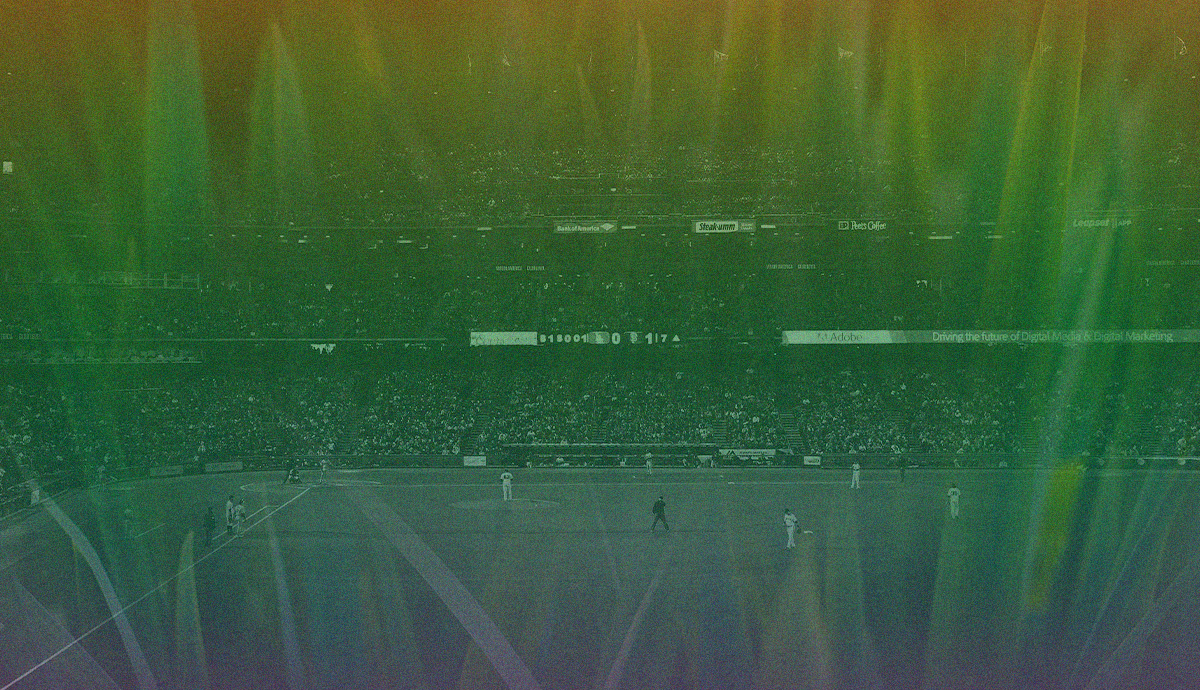Every Atom | No. 107
Introduction to Every Atom by project curator Brian Clements

That the sport of baseball, burgeoning as it did through the latter half of the 19th century, should have a place in Walt Whitman’s work is unsurprising, and still less surprising is that baseball should find its way into the sweeping capaciousness of “Song of Myself.” But for as large as baseball has loomed in the American consciousness—even to the point of a kind of national shorthand—the game is merely another place in Whitman’s wide roaming where the poet might be found, another field on which his enormous and attentive and ravenous gaze might rest. In “Song of Myself,” baseball is gathered with other incidents of light leisure—races, picnics, dancing—from which the verse careens on into the pleasures of consumption, on to, fraughtly, apples. There’s a facile bridge here: Americana, sport and pie. Let’s cross that bridge and speak of kisses, a topic largely unbroached in the homosocial but often homophobic realm of Sport.
For a more frequently cited bit of Whitmania on the subject of baseball, turn to Horace Traubel’s With Whitman in Camden, in September of 1888, where the poet says,
I like your interest in sports—ball, chiefest of all—base-ball particularly: base-ball is our game: the American game: I connect it with our national character. Sports take people out of doors, get them filled with oxygen—generate some of the brutal customs (so-called brutal customs) which, after all, tend to habituate people to a necessary physical stoicism. We are some ways a dyspeptic, nervous set: anything which will repair such losses may be regarded as a blessing to the race. We want to go out and howl, swear, run, jump, wrestle, even fight, if only by so doing we may improve the guts of the people: the guts, vile as guts are, divine as guts are!
Whitman praises guts, the rough and tumble, all the things that are ingrained in the young athlete and the old, and he calls all this a boon, which it is. Here is resilience, here is what is necessary to endure. In the record of the same day, Traubel captures this: “I kissed W. as I left. He seemed very grave. ‘Some kiss some day (maybe some day when we both least expect it) will be the last kiss. Good bye! Good bye! God bless you!’”
That final kiss, also, is writ in the body of the athlete. Some day when the body least expects it, the body will no longer be as it was. The knees grate; the shoulder wrenches. Not the end of life, but the end of a certain way of living (which is to say the beginning of another way). In “Song of Myself,” endings are as much celebrated as beginnings. These nows, these kisses, this running juice, these places where “I anchor my ship for a little while only”—each must cede to the next, and that is true of the body also and especially.
Here are these sweet things—and I can think of little sweeter than grass and pine tar and red earth and the coil and bunch of muscle and tendon and the ash-bright bell of a well-struck ball—all gathered together, though they will not last. They are the sweeter for it.
Recommended
Nor’easter
Post-Op Appointment With My Father
Cedar Valley Youth Poet Laureate | Fall 2024 Workshop






